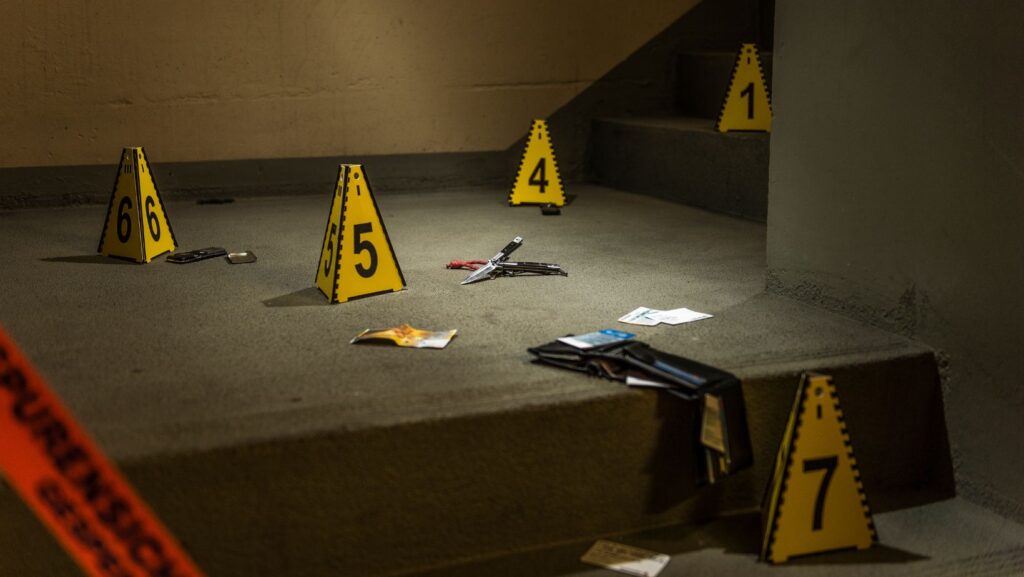Today’s court personnel and authorities find that digital evidence figures in about 90 percent of U.S. criminal cases, including sex crimes. Yet, in 2023, reports pointed out that less than 25 percent of reported sexual crimes end in clearance, like an arrest or exceptional case closure. This stark gap highlights how critical it is to preserve and scrutinize digital traces, especially in sex-crime investigations, to help uptick case resolutions.
- EXIF Photo Metadata
It’s a tool that shapes cases by proving where and when a photo was taken, and this can be used like a GPS tag in a photo that can strengthen or break the alibi you presented in court.
- GPS History
You can use this to shape cases, like mapping your movements, so that if the GPS shows you across town at the relevant time, it can challenge the prosecution’s timeline.
- Wi-Fi Logs
This can help shape cases by proving your or an accused’s presence in specific locations. Often, connection to a café network can contradict a claim of being at home or a sworn location (alibi) at the time of the offense or crime.
- Carrier Records
These records can shape cases by tying you to cell tower footprints. Most of the time, prosecutors use this to show presence near a scene, but the defense can show overlapping coverage zones that reduce precision.
- Geofence Warrants
These warrants help shape cases by sweeping in all devices in a location zone, which can either falsely implicate or rule out your suspects, depending on the court’s interpretation.

- Smartwatch Metrics
Some metrics generated by smartwatches may now help cases by syncing body data with alleged events or situations experienced by the wearer. For example, a sudden spike in heart rate or motion can suggest activity, but context can also prove innocence if appreciated to be so.
- App Usage Logs
This may shape cases by showing intent or overt act. If someone opens a rideshare app minutes before an event, prosecutors may argue there’s planning or premeditation in some cases. Defense, on the other hand, may argue it was just a coincidence.
- IP Address Logs
These can often shape cases by linking online activity to a person or place, tying an account to a crime, or proving access that came from another device. That’s why you may need to install a private VPN in your home now, helping you and all your family members connect safely online. It’s the best work to avoid hackers; even government surveillance systems can’t track you.
- CCTV Footage
Some footage can shape cases by offering visual evidence, with videos becoming quite material in confirming the accused’s identity, disproving a timeline, or introducing doubt if images are patently unclear.
- Smart Home Events
Often, smart home events shape cases by logging entries, voice commands, or lighting activity, which could be material to back up or weaken testimony about who was home at the time of the incident.
- Cloud Backups
These backups could shape cases by surfacing deleted texts, photos, or chat threads. Often, prosecutors use automatic syncs to prove intent, while the defense can question consent and authenticity if they’re presented in court.
- Deletion Artifacts
Often, deleted files still linger and can be recovered through some advanced forensic tools. This is when prosecutors may argue the showing of intent to conceal and come clean. That’s why, if you’re under investigation, having a firm defense against sex crime allegations through seasoned legal experts can be quite material to your case. Specialists, like those at Tad Law in League City, might just be your champions who know how to challenge weak interpretations of digital traces and protect your rights and future.

- Gaming Chat Logs
These logs may help shape cases by capturing in-game verbal exchanges. Most of the time, in-game threats, admissions, or casual remarks can be introduced as evidence of intent or state of mind of the perpetrator.
- Two-Factor Authentication Records
These records can help shape cases by proving account access. By its nature, if a login code went to your phone, it ties you to your phone’s activity, much more so if it’s an unlawful one. Your defense lawyer can argue, however, that your credentials were stolen or that your device was compromised.
Why These Matter So Much
Today’s advancements in tech offer investigators and prosecutors more options, especially the use of digital traces routinely in proving intent, disproving alibis, and prosecuting sex crime offenders. When you understand each trace, you help preserve critical exculpatory data; at the same time, you’ll also have the power to challenge weak or overreaching claims and accusations.
That’s why you need to know how prosecutors lean on tech to frame cases—and how you can flip or fragment their narratives. Today, while AI and geolocation tools can reconstruct timelines in seconds, they can also misplace you or misinterpret ambiguous signals that could make or break the tower of defense you’re building for your acquittal.


























































